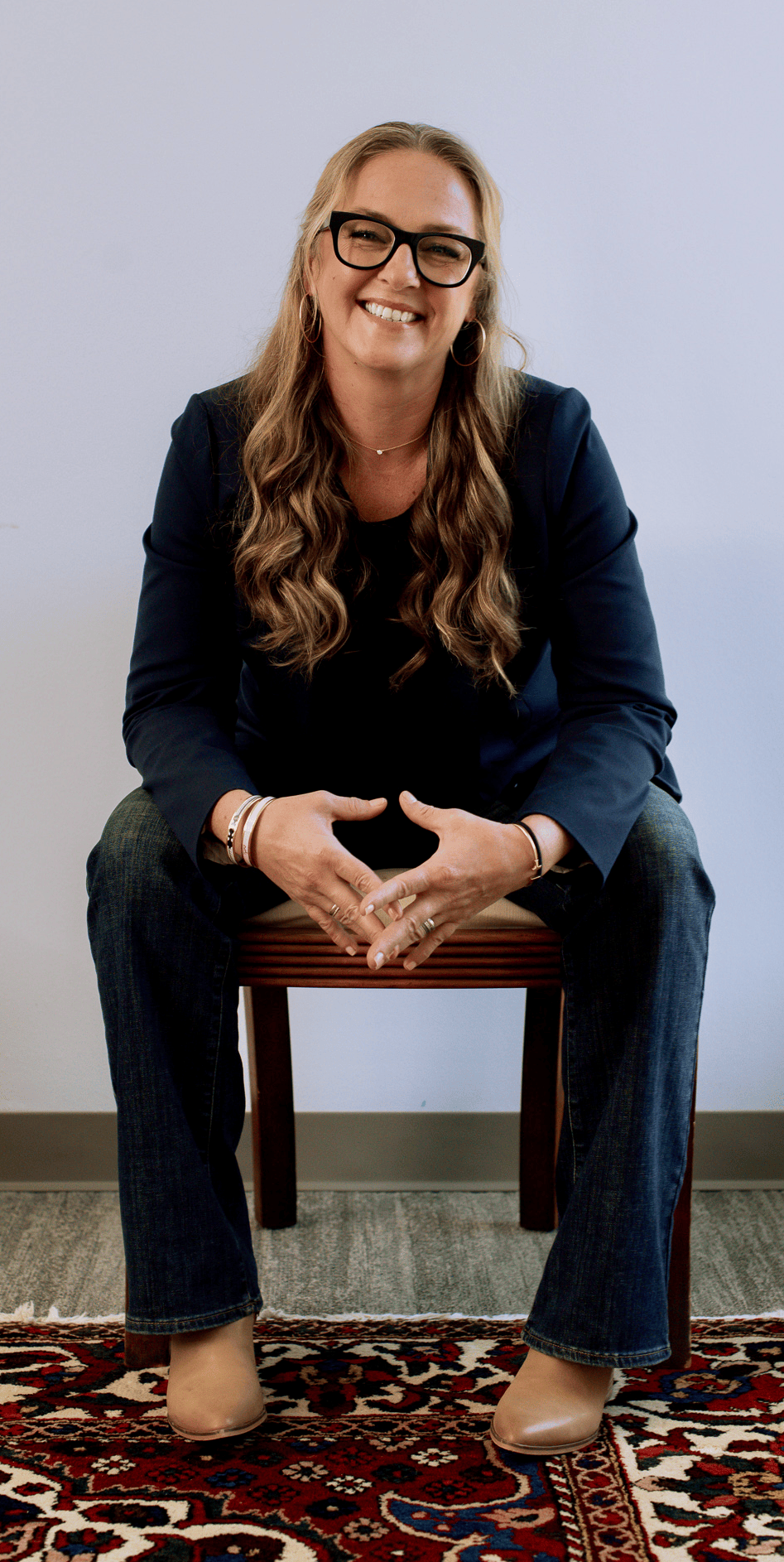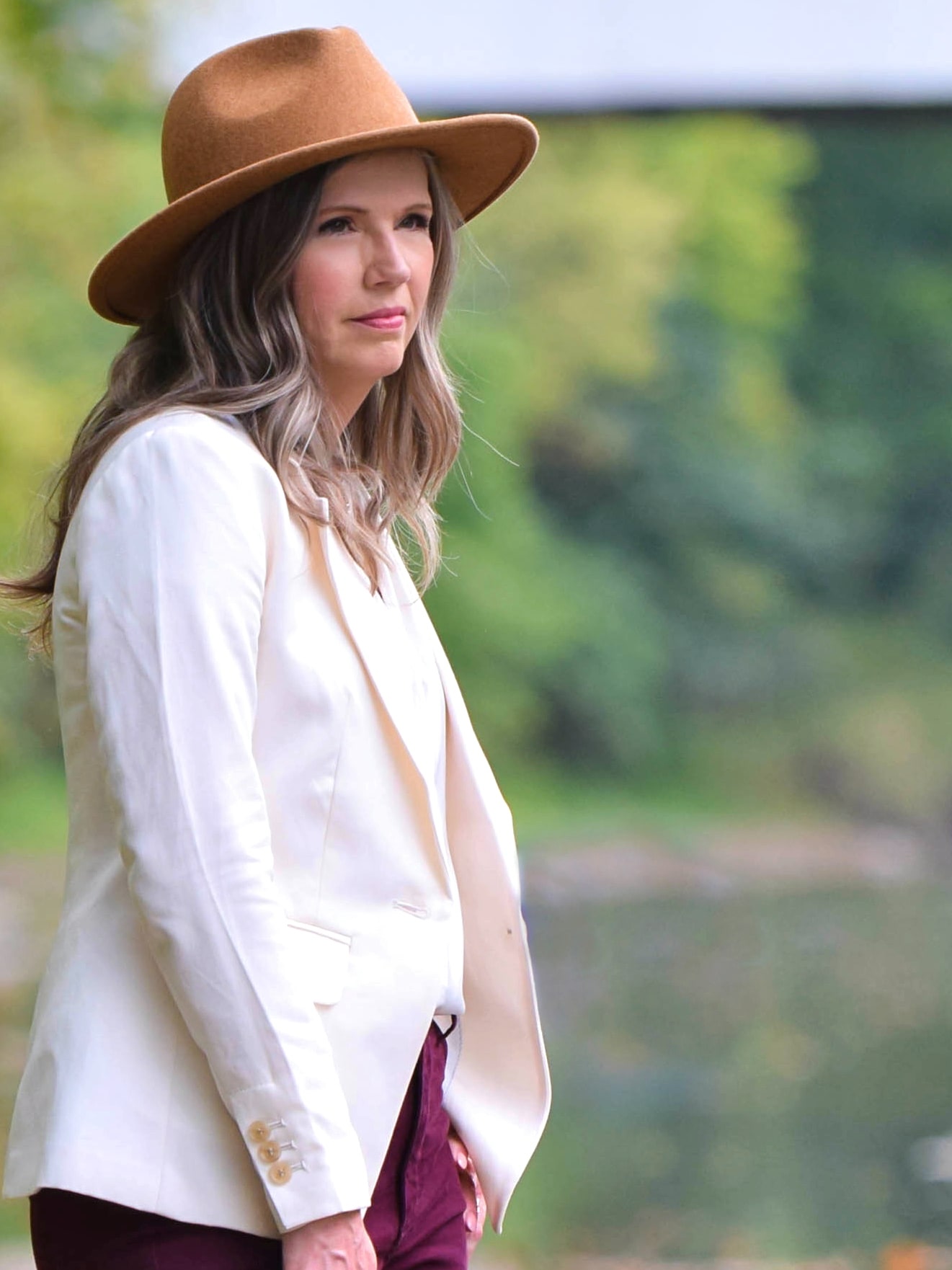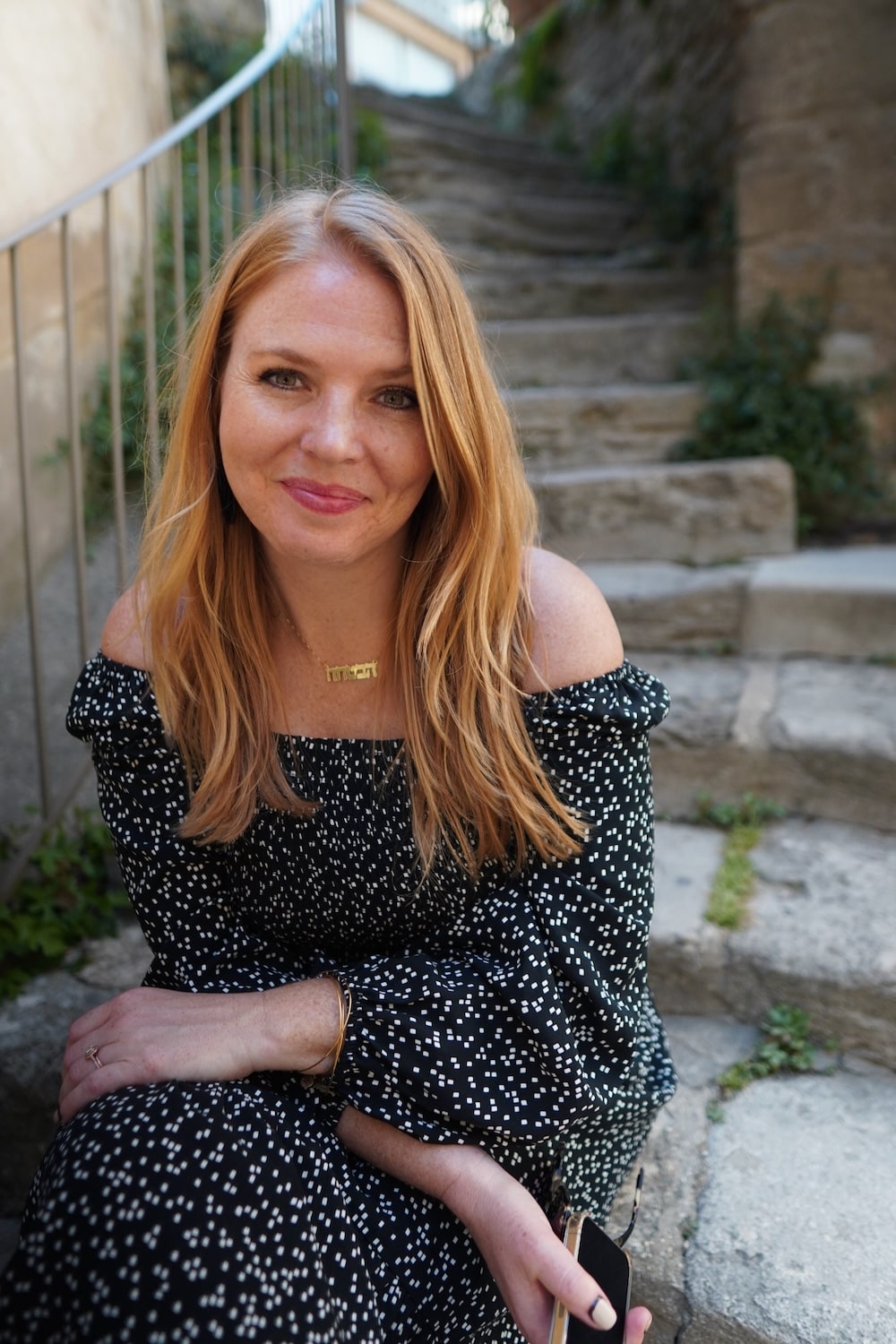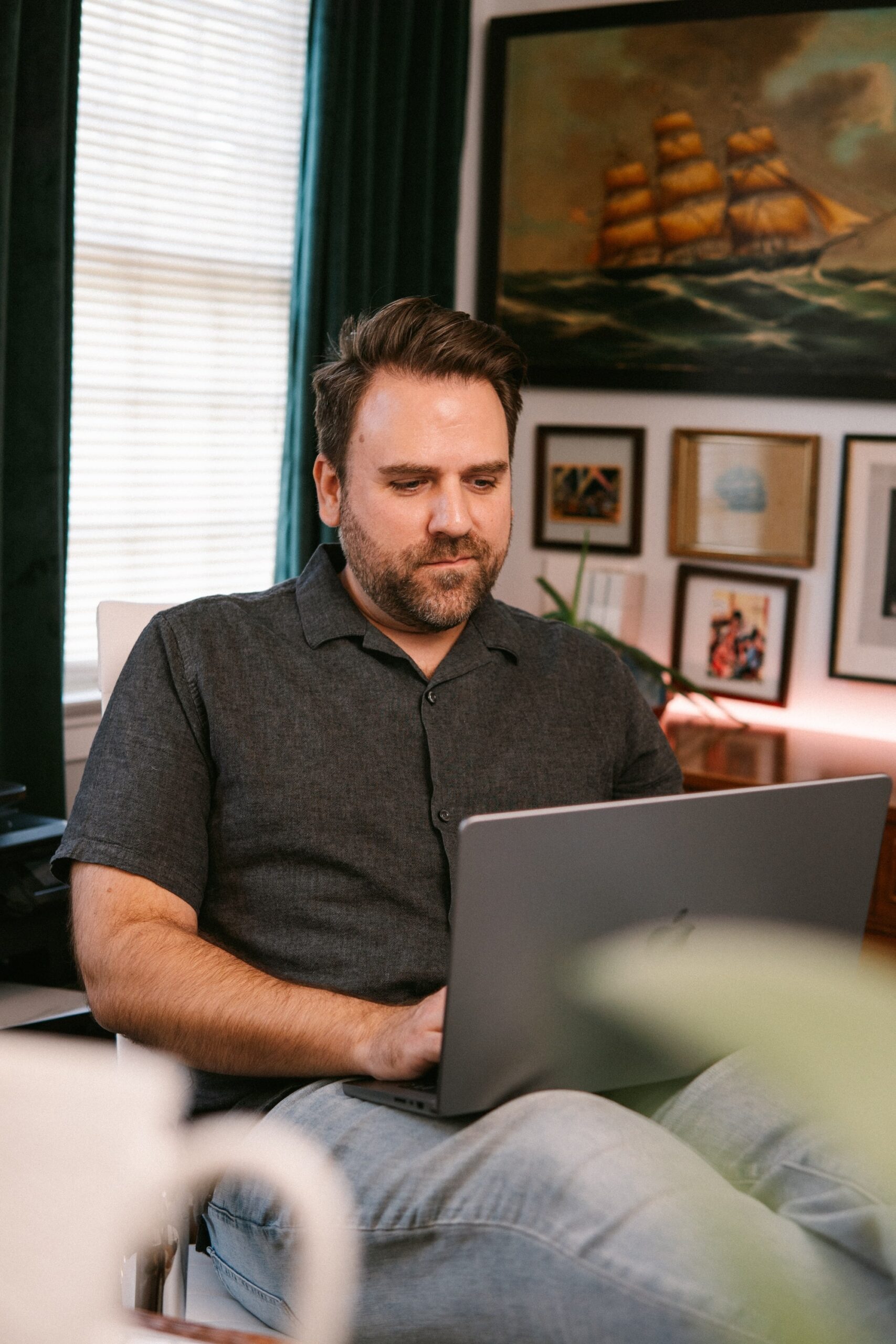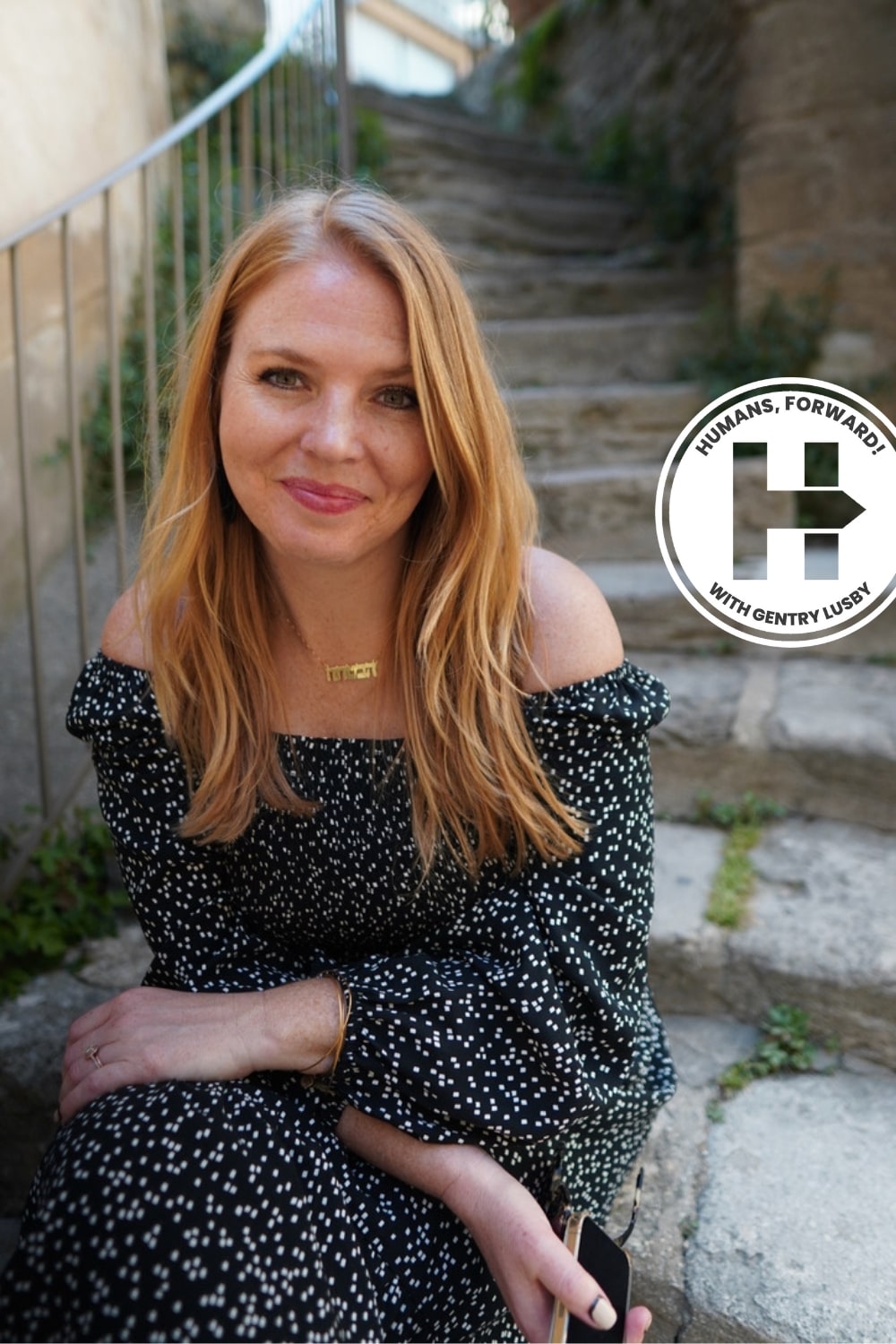
Watch on Youtube | Apple Podcast | Spotify
Grief doesn’t always knock the wind out of you in a single blow. Sometimes, it creeps in quietly—through invisible losses, the unraveling of dreams you never got to hold, and the silent spaces where you realize life isn’t going to unfold the way you thought it would. It’s not always a death you grieve. Sometimes, it’s the life you imagined but never got to live.
In a recent conversation on Humans, Forward!, I sat down with my wife, Gretchen, to talk about the kind of grief that often goes unseen: the grief of infertility. We opened up about what it looks like to survive invisible loss, how grief reshapes who we are, and why finding wholeness again isn’t about going back to the way things were—it’s about becoming someone new.
Grief Breaks You Before It Remakes You
Grief isn’t a detour around your life. It’s a demolition. It tears through your heart, your mind, and your body without asking permission, and it leaves you trying to rebuild with pieces that don’t fit the way they used to.
I’ve learned firsthand that you don’t get to go back to who you were before. There’s no “moving on” or “getting over it.” You reshape. You create a new version of yourself that knows how to carry the darkness instead of pretending it isn’t there.
Grief changes your shape. The real work is learning how to live inside that new shape without wishing it away.
The Cycle of Manufactured Hope
Infertility doesn’t give you one single loss. It hands you a thousand tiny ones. Every month became a new cycle of hope, expectation, and heartbreak for us. It was a 28-day crash course in resilience that neither of us signed up for.
We would hope. We would try. We would grieve. And then, somehow, we would hope again.
After a while, it became hard to tell if we were actually hopeful or just manufacturing it because the alternative felt unbearable. Even manufactured hope counts. Sometimes, it’s the only thing that keeps you moving.
Grieving on Different Timelines
Grieving alone is brutal. Grieving in a marriage is a different kind of messy.
Gretchen and I grieved in ways that didn’t always line up. She leaned into the pain, willing to feel it fully and immediately. I tried to outrun it, thinking maybe if I stayed busy enough and moved fast enough, the sadness wouldn’t catch me.
It did. It always does.
Grief doesn’t check to make sure everyone’s on the same timeline. It doesn’t wait until you’re both ready. The real magic is learning how to make space for each other’s wildly different ways of surviving the same loss.
You don’t have to grieve the same way to grieve together. But you do have to give each other permission to be messy and human without judgment.
When the Calendar Turns Against You
One year after a major loss, your body remembers—even if your mind tries to move on.
Gretchen and I talked about something called the Anniversary Effect, where sadness, anxiety, or anger hits you harder around meaningful dates. Sometimes, it feels like your body is dragging you backward into a moment you thought you survived.
One thing that’s helped us is asking two simple questions: What’s the same as last year? What’s different?
It’s a small practice, but it reminds me that I’m not stuck in the same place. Grief tries to convince you that you are, but even the smallest signs of change matter.
Rewriting the Story of Pain
You can’t erase grief. But you can rewrite how it shows up in your life.
After one especially brutal IVF cycle, Gretchen and I decided we weren’t going to let that memory define our anniversary. Instead of reliving the pain, we created a new memory—swapping shots of medicine during IVF for vodka shots in a parking lot and laughing through tears at how ridiculous it all was.
Rewriting doesn’t erase what happened. But it reminds you that you’re still alive, still capable of joy, still in charge of what gets written next.
You’re allowed to build new memories without betraying the old ones.
Why Grief Makes Everything So Awkward
If there’s one thing I’ve learned, it’s that we are collectively terrible at grief.
We don’t know how to sit with sadness. We don’t know how to witness someone else’s pain without rushing to fix it. And when someone else’s grief stirs up our own unprocessed pain, we tend to say some pretty awful things—no matter how good our intentions are.
Gretchen shared about standing in front of people, talking vulnerably about our infertility journey, and feeling their silent judgments. I could see it too. The unspoken questions hanging in the air: What’s wrong with them? Why isn’t her body doing what it’s supposed to do?
Grief makes people uncomfortable. Not because grief is wrong, but because most of us were never taught how to hold it.
If you don’t know what to say to someone who’s grieving, just be there. Sit with them. Bring food. Send a stupid meme. Let them be messy. That’s real support.
There’s No Right Way to Grieve, But There Are Wrong Ways
There’s no correct way to grieve. No checklist to follow. No gold star for healing faster than someone else.
But there is one wrong way: pretending you aren’t grieving at all.
Shoving it down, bottling it up, painting over it with toxic positivity—it doesn’t heal you. It buries the pain deeper, where it can grow sharper and harder to carry.
Grief will find a way out. If you don’t make space for it, it will claw its way out sideways through anger, anxiety, addiction, or loneliness.
Letting grief wreck you for a while isn’t weakness. It’s survival. It’s the cost of being human and still choosing to stay open anyway.
Moving Forward, Not Moving On
Grief doesn’t leave you the way it found you. It reshapes you. It weaves itself into the fabric of who you are.
You won’t be the same after loss. And honestly? You shouldn’t be.
You’ll be softer in some places and fiercer in others. You’ll carry the darkness, yes—but you’ll also carry a deeper compassion for the people around you who are carrying their own invisible battles.
You don’t move on. But you do move forward.
And somehow, against all odds, you’re still here. Still human. Still moving toward something beautiful.
Grief, Infertility, and Finding Wholeness Again
Whether through speaking, storytelling, or coaching, I share real experiences, learned and curated wisdom, and practical tools to help you (and humanity) move forward.
I'm a motivational speaker, talk show host, writer, and creative. And I'm a endlessly curious human trying to figure out, well… humans. What makes us successful, fulfilled, disappointed, or stuck? How do our experiences shape us? And more importantly—how do we human better?
If we haven’t met yet, I’m Gentry Lusby.
meet
the
blogger
